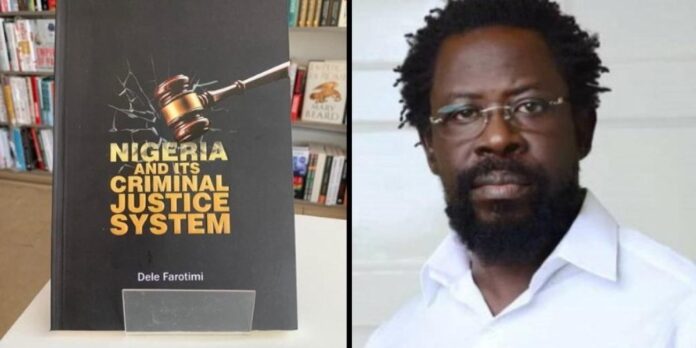Ekiti State police have announced a ban on all protests and gatherings, a move that has sparked intense reactions as human rights groups plan nationwide demonstrations in support of detained lawyer Dele Farotimi.
Farotimi, known for his vocal stance on human rights issues, was arrested in Lagos on charges of defamation against Aare Afe Babalola, the founder of Afe Babalola University in Ado Ekiti.
The arrest follows allegations that Farotimi’s book, Nigeria and its Criminal Justice System, contained defamatory remarks about Babalola, accusing him of using corrupt methods to influence Supreme Court decisions in his favor.
The controversy has escalated, with the human rights community rallying behind Farotimi. Prominent figures like Omoyele Sowore, the presidential candidate for the African Action Congress (AAC) in the 2023 elections, have called for protests in key cities, including Lagos, Abuja, and Ado Ekiti, on December 10.
The protests are planned to coincide with a crucial hearing for Farotimi’s bail application. However, Ekiti State police have moved swiftly to impose a ban on any form of protest.
The Police’s Statement:
On December 6, the police issued a statement outlining their decision. The Police Public Relations Officer, DSP Sunday Abutu, explained that the ban was necessary to maintain law and order.
Abutu cited intelligence reports suggesting that certain individuals might hijack the protests to create chaos and endanger public safety.
“The Command, under the leadership of CP Akinwale Kunle Adeniran, is assuring everyone of adequate security during and after this Ember months period while seeking for more support, collaboration, and obedience to law and order,” Abutu said.
He also urged parents and guardians to advise their children and wards against participating in any unlawful gatherings. The police warned that violators would face legal consequences.
Farotimi’s Detention Sparks National Outrage:
Farotimi’s arrest and subsequent remand in prison custody have drawn widespread condemnation from human rights activists, civil society groups, and political figures. They argue that the charges against him are politically motivated and part of a broader crackdown on dissent.
Sowore, who has been a vocal critic of the Nigerian government, expressed his concerns about Farotimi’s detention, calling it an attempt to silence opposition voices. He and other activists have vowed to go ahead with their planned protests, despite the police ban.
“We will not be silenced,” Sowore said in a recent statement. “This is not just about Farotimi. This is about the freedom to speak out against injustice. We will stand for his release.”
The protests, which are set to take place in several major cities, have become a rallying point for those advocating for the protection of human rights and the rule of law in Nigeria.
Police Caution Against Unlawful Gatherings:
The police are not only focused on banning protests but have also announced additional security measures for the festive season. The use of fireworks, which often causes confusion and panic, has been prohibited. Authorities emphasized that fireworks can be mistaken for gunshots, leading to unnecessary fear and anxiety.
Abutu’s statement highlighted the need to safeguard public peace during the busy holiday period. “The safety of lives and property is our priority,” he stated, urging residents to cooperate with law enforcement.
The ban on protests and fireworks comes as Ekiti State braces for what could be a tense December, with activists determined to challenge the legal system and demand Farotimi’s release.

